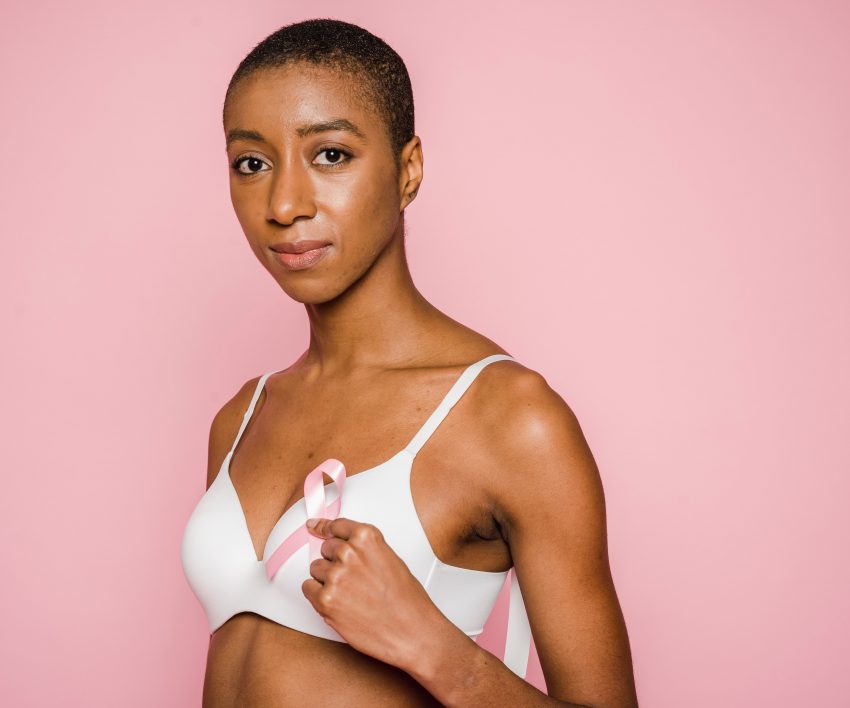
Women in South Africa have a lifetime risk of breast cancer of 1 in 27, yet enormous advancements in cancer detection and treatment continue to inspire great hope and optimism, according to Dr. Helen Weber of Sanlam. Nearly half (48%) of the company’s severe illness claims for women last year were explicitly related to breast cancer, which accounted for 63% of the claims. Despite these facts, Dr. Weber claims that yearly physicals and routine breast self-examinations continue to promote the best possible treatment outcomes and a favourable prognosis.
“You know your breasts best, so keep checking to note any changes and flag these with your doctor early on,” she advises.
Read on to find out answers to a few common questions about breast cancer brought to you by Dr. Weber.
How often should women go for breast cancer screening?
Women should perform monthly self-breast examinations she says. She further explains that if you have a regular cycle, you should do a check 3-5 days post the start of your period. If you are irregular, then choose the same time to self-examine every month.
Dr Weber suggest that one makes use of YouTube and social media videos, pamphlets and other materials on how to self-check. If you’re unsure, ask your doctor for guidance. Look out for any new lumps, changes in the colour or shape of the breast or any discharges from your breast (if you are not breastfeeding). Remember, hormonal changes often result in perfectly normal lumps and bumps popping up, which should go away. If they persist or you feel concerned, speak to your GP.
You should go to the doctor every year for a basic health screening if you’re under 50. If you’re older and have a history of cancer or another chronic illness in your family, you might need to increase this.
Younger women typically have denser breasts, so a mammogram may be accompanied by an ultrasound says Dr Weber. After 55, a woman with a lower risk profile may only need a mammogram every two years. For women with denser breasts, a mammogram and ultrasound will be performed. If there are still concerns, specialised magnetic resonance imaging (MRI) may be used. MRI is also used for younger females with a strong family history of cancer.
Is there a blood test women can have that detects breast cancer?
Not yet, but this is the ideal we are working towards. Current genetic testing (blood test) with a family history, can indicate whether someone is at risk for breast cancer. Blood tests can indicate abnormalities suggesting a greater risk of colon or ovarian cancers. However, they cannot be used diagnostically; for that, we need a piece of the tissue in question. We are making significant strides in terms of genetics and the characterisation of certain cancers, which is already saving and prolonging lives. People can be a lot more positive now when they receive a cancer diagnosis.
Should you get genetic counselling for breast cancer?
Firstly, it’s important to note that the biggest percentage of breast cancers are not genetically associated. Genetic counselling works best when you can look at a family’s full picture. The tests will reveal if a person is a positive carrier of a harmful variant in the BRCA1 or BRCA2 genes, which indicates an increased risk of developing certain cancers.
You should only consider genetic counselling after a discussion with a professional – your GP or surgeon, or a genetic counsellor. There are pros and cons to consider before embarking on this test. There are also indications and recommendation guidelines to determine who and when to test, for example, someone with a strong family history of breast, ovarian or pancreas cancer. Your age will also be considered.
Usually, your mother/an affected relative is tested first. If she is positive for the BRCA gene – depending on her age when she got the diagnosis, the type of cancer she had, your family history, and your age – you can make an informed decision about whether to take the test as well. Profiling you and your mother/ family member gives a more holistic and accurate assessment of your risk.
Dr Weber says in South Africa, medical aid schemes have specific criteria that need to be ticked before they’ll consider paying toward genetic counselling. Before undertaking the tests, you also need to consider what you’ll do once you know. It could be a good idea to speak to a genetic counsellor before you do so, she advises.
Do insurers cover preventative mastectomies?
Many do cover preventative mastectomies, but only if a list of contractual requirements is met, for example, one’s family history or a positive BRCA test.
What kinds of risk cover should women have?
Whilst medical aid is very important, gap cover can help cover the costs of oncology drugs as most oncology benefits are capped, and the cost of oncology drugs is huge. Severe illness cover can provide a critical lump sum payment that can further assist with covering some of the treatment costs, and income protection and a sickness benefit can protect against extended absence from work. Breast cancer treatment and recovery can take anything from three to six months or longer, and a typical ‘sick leave’ allowance is usually just 30-days in a three-year cycle.
How has breast cancer treatment advanced?
There’s been a lot of positive progress enabling us to detect and diagnose breast cancer earlier, at a molecular, immunological and hormonal level. This allows us to give very targeted and effective types of treatment, responding to the hormonal or immunological expression of the cancer. These targeted treatments enable us to do more breast conserving surgeries, alongside radiotherapy and hormonal treatments post-surgery. We now also have less toxic chemotherapy combinations with fewer side effects.
According to Dr. Weber, the prognosis improves with early detection. “Regular screening saves lives. It’s crucial to do monthly self-checks and annual screenings to get a holistic picture of your health.”




